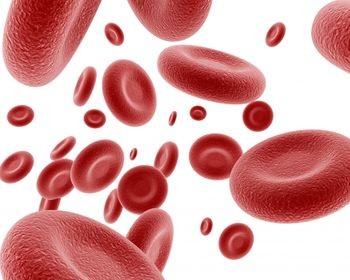 Before getting to know low red blood cell count, let's first know more about red blood cells and their normal count. Red blood cells (RBC) or erythrocytes are cells responsible for carrying oxygen throughout the body. The RBC count will determine the amount of oxygen received by the body tissues. Because the hemoglobin contained in red blood cells carries oxygen to tissues all over your body.
Before getting to know low red blood cell count, let's first know more about red blood cells and their normal count. Red blood cells (RBC) or erythrocytes are cells responsible for carrying oxygen throughout the body. The RBC count will determine the amount of oxygen received by the body tissues. Because the hemoglobin contained in red blood cells carries oxygen to tissues all over your body.
RBC count, also known as erythrocyte count, is a blood test to determine the number of red blood cells in blood, which is essential for tissues to function properly.
What Is the Normal Red Blood Cell Count Range?
The ability of the red blood cells to carry oxygen depends on the amount of hemoglobin. If the hemoglobin levels are low, the body is required to work a lot harder to supply oxygen to all the body tissues. Low hemoglobin level means the person is anemic and can result in symptoms like fatigue and shortness of breath.
The normal range of RBC is:
Male: 4.7 to 6.1 million cells per microliter (cells/mcl)
Female: 4.2 to 5.4 million cells per microliter (cells/mcl)
The normal ranges can differ for different laboratories and also differ depending on the measurements or samples. Usually, ranges given above are common measurements, but doctor should be consulted for the specific test results.
What Causes Low Red Blood Cell Count?
As we have read earlier, the amount of oxygen received by the body is determined by the number of red blood cells in blood. The oxygen from the lungs binds with the hemoglobin of the red blood cells, which is then circulated throughout the body. Causes of low red blood cells could include:
- Anemia
- Bone marrow failure
- Cancer or leukemia
- Multiple myeloma (cancer of plasma cells)
- Erythropoietin deficiency
- Excessive bleeding
- Red blood cell destruction or hemolysis caused due to transfusions
- Blood vessel injury
- Malnutrition and nutritional deficiency of iron, copper, folate, vitamin B6 and B12
- Medications like Chemotherapy drugs, Chloramphenicol, Hydantoins and Quinine
- Pregnancy
What Are the Signs of Low Red Blood Cell Count?
- Various symptoms of low RBC count can include fatigue, being easily tired, pale appearance, palpitations (heart racing), shortness of breath, etc.
- Other symptoms like hair loss, malaise (feeling unwell) and worsening of heart problems can also indicate low RBC count (Anemia).
- If the anemia is long standing, the body will get used to low oxygen levels and no symptoms are noticed; however, if the condition is acute, the symptoms can develop rapidly.
When to See a Doctor
If you experience any of the following symptoms, you should inform your doctor:
- Severe weakness

- Dizziness or lightheadedness
- Palpitations or very fast heart beats
- Shortness of breath or difficulty in breathing
- Chest pain
How to Deal With Low Red Blood Cell Count (Anemia)
Making changes in your lifestyle or diet can help in improving the RBC count.
Change Your Lifestyle
Making subtle changes in daily routine can help in dealing with anemia symptoms.
- Not overdoing any physical activities, lying down when tired and lying flat on the bed when feeling dizzy help a lot.
- Instead of getting up suddenly, it is better to sit on the bed for a while and ask for help when feeling unsteady on feet.
- Maintain sleep patterns, move around hands and legs when you have been in bed for long.
- Change positions slowly, be cautious not to get injured and be prepared for mood swings and change in interest.
- Avoid using hot water bottles and heating pads.
- Sexual activity during the morning should be preferred as the body has been rested overnight.
Keep a Healthy Diet
- Incorporate green leafy vegetables and red meat in the diet to get a dose of iron, folic acid and vitamins which help increase the hemoglobin levels and build red blood cells.
- Drink 8-10 glasses of water if there is no underlying heart or kidney problem.
- Also, eat well-balanced meals will help.
- Iron supplements can cause constipation; to prevent it, include prunes in the diet when taking iron supplements.
Medical Treatment
The medical treatment for anemia will depend on the severity of the anemia. If the condition is not severe, over the counter iron supplements for daily use will be advised. For more severe condition, blood transfusion is ordered.
Sometimes the doctor might advise growth factor injections, which increases the number of red blood cells. This will help in reducing the number of blood transfusions and also prevent anemia. The injections will be administered till the red blood cell count comes to normal, after which they will be discontinued.
Here is a video showing some iron-rich foods that can fortify your blood, just try some depending on your own conditions:
